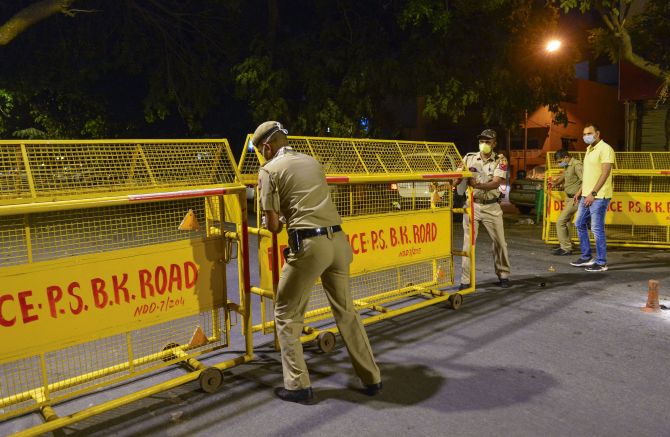Check out the set of new guidelines for lockdown 2.0:
After extending the lockdown till 3rd May, the government today released a set of guidelines under which activities like agriculture, IT, e-commerce and inter-state transport will be allowed to “mitigate hardships to public.” The exemptions have been given to the fisheries and poultry sectors. The total number of positive COVID cases has reached 11,439. The lockdown was announced by Prime Minister Narendra Modi on Tuesday for another 19 days till May 3.
Check out the MHA guidelines:
Health sector
- All health services and the social sector to will be functional; public utilities to function without any hindrance
- Chemists, pharmacies, veterinary hospitals to remain open. Manufacturing units of drugs, medical equipment, and construction of media infrastructure to be allowed.
Financial sector:
- The important components of the financial sector, like RBI, banks, ATMs, capital and debt markets as notified by SEBI and insurance companies will also remain functional
- SEBI, and capital and debt market services as notified by the Securities and Exchange Board of India
- IRDAI and Insurance companies.
Farming sector

- Farming operations, including procurement of agricultural products, agriculture marketing through notified Mandis and direct and decentralized marketing, manufacture, distribution and retail of fertilizers, pesticides and seeds; activities of marine and inland fisheries; animal husbandry activities, including the supply chain of milk, milk products, poultry and livestock farming; and tea, coffee and rubber plantations are allowed to be functional.
- Industries operating in rural areas, such as food processing industries; construction of roads, irrigation projects, buildings and industrial projects in rural areas; works under MNREGA, with priority to irrigation and water conservation works; and operation of rural Common Service Centres (CSCs) have all been allowed.
- Operation of the fishing, aquaculture industry. Movement of fish products now allowed.
- Operations of tea, coffee, and rubber plantations, with a maximum of 50 percent worker.
- Collection, processing, distribution and sale of milk and milk products.
- Operation of animal husbandry farm.
- Operation of animal shelter homes
Public utilities
- Petrol pumps, LPG, Petroleum and gas retail, and storage outlets will be open
- Generation, transmission and distribution of power at Central and State/UT levels
- Operations at municipal, local body levels
- Telecommunications and internet
Transport and Goods
- Transportation of goods will be allowed without any classification of essential or non-essential.
- Operation of railways, airports, seaports for the transport of good and cargo movement
- Movement of all trucks with two drivers and one helper will be allowed
Essential services

- All facilities in the supply chain of essential goods can be carried out.
- Shops, including ration shops (under PDS), dealing with food, groceries, fruits and vegetables, dairy and milk booths, meat and fish, animal fodder, fertilizers, seeds, and pesticides. No restriction on timing. However, district authorities may encourage and facilitate home delivery.
- Print and electronic media be work.
- E-commerce operations, couriers services are allowed
- Cold storage and warehousing services.
- Data and call centers for Government activities only.
- Hotels, home stays, lodges and motels, which are accommodating tourists and persons stranded due to lockdown, medical and emergency staff, air and sea crew.
- Services provided by self-employed persons like electrician, a plumber can also work now.
Industries
- In addition to the manufacturing of essential goods and rural industries, establishments engaged in the production of coal, mine, mineral, packaging material, jute, brick kilns
- Manufacturing and other industrial establishments with access control will be allowed in SEZs, EoUs.

Construction
- Construction of roads, irrigation projects, buildings and all kinds of industrial projects
- Construction of renewable energy products
Others
- Defence, Central Armed Police Forces, Health and Family Welfare, Disaster management and Early Warning Agencies
- Police, home guards, civil defense, fire and emergency services
- All other departments of State/UT to work with restricted staff
Prohibited activities:
- The activities prohibited across the country are traveling by air, rail and road; operation of educational and training institutions; industrial and commercial activities; hospitality services; all cinema halls, shopping complexes, theatres, etc.; all social, political and other events; and opening of all religious places/ places of worship for members of public, including religious congregations.
- All educational institutions to remain shut














